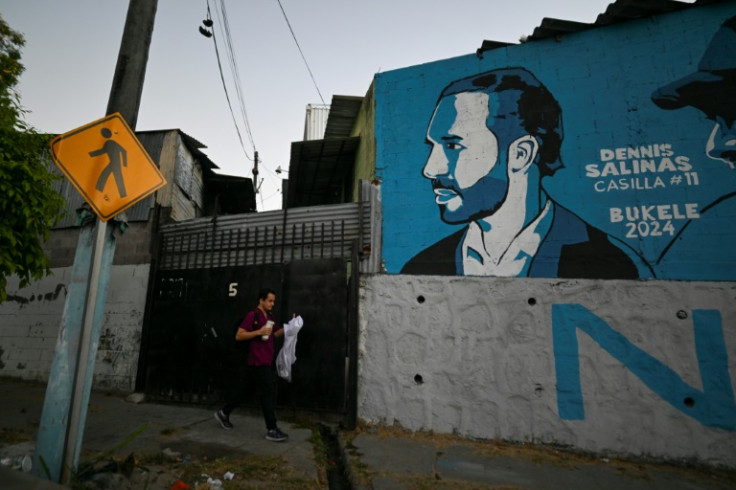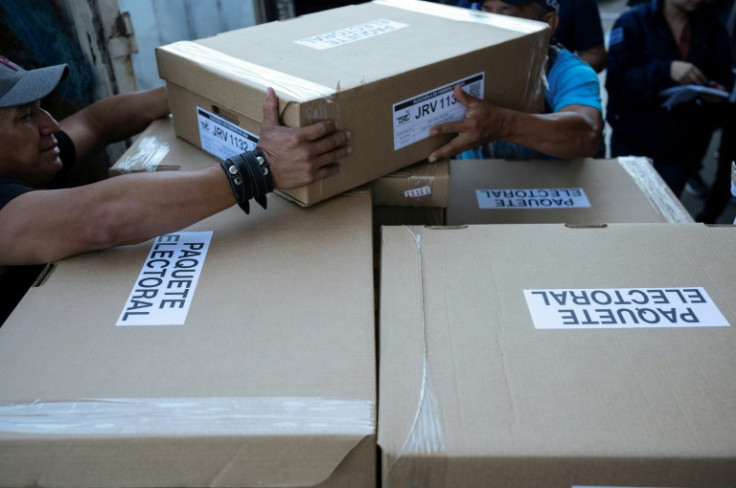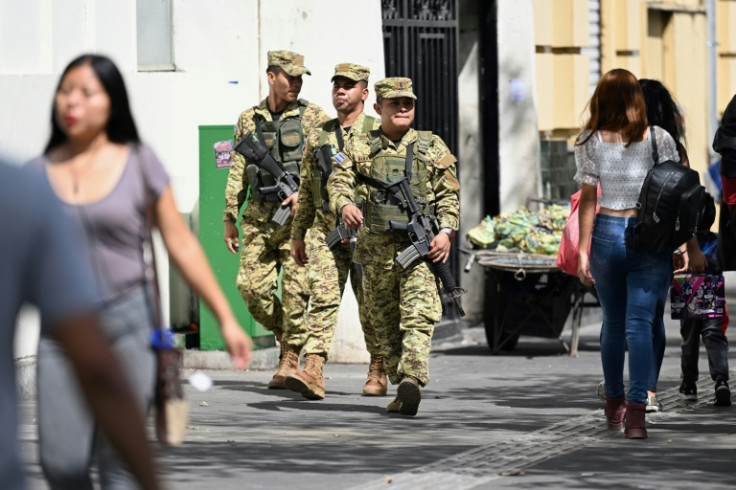El Salvador Votes With Gang-busting Bukele Miles Ahead

Salvadorans voted Sunday with victory in the bag for incumbent President Nayib Bukele thanks to a no-holds-barred war on gangs that has slashed homicide rates in the violence-weary country.
Voting without fear for the first time in many years under a state of emergency imposed for the crackdown, Salvadorans young and old waited patiently -- many gleefully -- in queues watched over by tens of thousands of police and soldiers countrywide.
Bukele, 42, holds approval ratings hovering around 90 percent, polls as Latin America's most popular leader and is expected to expand his hold over the legislative assembly.
But his reelection is controversial, having been made possible by a loyalist Supreme Court ruling allowing him to bypass a constitutional ban on successive terms.
El Salvador's fearsome gangs took some 120,000 civilian lives in three decades, according to the government, which says criminal groups controlled 80 percent of the country when Bukele took power in 2019.
His government has rounded up more than 75,000 gangsters -- real and suspected -- since a state of emergency came into effect in March 2022.
Thousands are held in a brand-new prison -- plugged as the largest in the Americas -- which the president had built in a matter of months.
And last year, the country that was once one of the most dangerous in the world saw the murder rate plummet to its lowest level in three decades -- far below the global average.
"Things were ugly before," said Sandra Burgos, 68, who recently opened a small bookstore in La Campanera -- a once notoriously violent neighborhood of San Salvador which in the time of gang rule was divided into numerous no-go areas.
"Now we are fine. We can move around... before it was not possible."
With little need to campaign for himself, social-media savvy Bukele has instead focused on beating the drum for his party, Nuevas Ideas, which holds 56 seats in the 84-member legislative assembly.
The overall number of seats has been reduced to 60 under a Bukele-led reform critics say will make it much harder for smaller parties to get in.
In 2022, the legislature also approved a law allowing expatriate Salvadorans -- who tend to favor Bukele -- to vote abroad.
In a message on X this week, Bukele urged Salvadorans to vote en masse for Nuevas Ideas so as not to "put the war on gangs at risk."
Analyst Ana Maria Mendez Dardon told AFP the political opposition could all but disappear after Sunday.
"There is a risk of having a one-party system in El Salvador," said Mendez, Central American director of the Washington Office on Latin America (WOLA), an NGO promoting human rights.
Activists say many innocents -- including minors -- have been caught up in the anti-gang dragnet, locked up in inhumane conditions and even subjected to torture.
In December, an Amnesty International report raised alarm over the "gradual replacement of gang violence with state violence."
Mario Delgado, a 68-year-old retiree in La Campanera, said he was in favor of the state of emergency but it had also "violated the rights of those of us who are not criminals" and pointed to arbitrary detentions.
Centralization of power is another concern, with the Bukele-aligned legislature having replaced top judges and the attorney general -- both institutions he had clashed with.
There are also worries about worsening antagonism towards critics and independent media, and of opaque public accounting.
El Salvador's ailing economy will be a major challenge for Bukele's second term, with high public debt and the president's investment of taxpayer money in bitcoin widely seen as a failed gambit.
Nearly 30 percent of Salvadorans lived in poverty in 2022, according to the UN's Economic Commission for Latin America and the Caribbean.
Voting in El Salvador is not compulsory, and turnout was just over 50 percent in 2019, when Bukele won in the first round with 53 percent of the vote.
There are about 6.2 million eligible voters worldwide, some 740,000 abroad -- mainly in the United States, according to electoral authorities.
None of Bukele's five rival candidates have even five percent of polled support.
Polls opened at 7:00 am and will close 10 hours later.



© Copyright AFP 2026. All rights reserved.





















